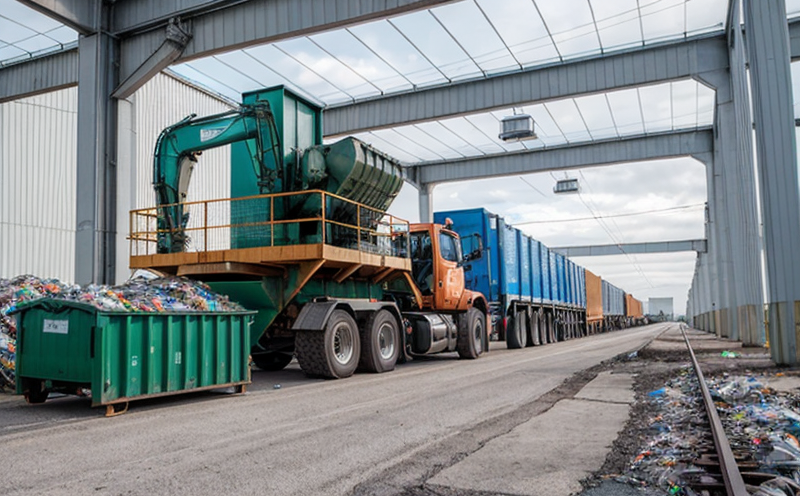ISO 22403 Material Efficiency Testing in Recycling Systems
The ISO 22403 standard is dedicated to assessing material efficiency within recycling systems. This service ensures that recycled materials are processed efficiently, thereby reducing waste and promoting sustainable industrial practices. The testing procedure evaluates the efficiency of a recycling process by measuring the amount of input material effectively converted into output products.
The first step in this process involves selecting representative samples from incoming raw materials and outgoing products. Specimen preparation is critical; it requires precise cutting, grinding, or sieving to ensure uniformity across all test specimens. The chosen method must align with the specific ISO 22403 guidelines to guarantee accurate measurement.
Instrumentation plays a pivotal role in this testing procedure. High-precision scales, calorimeters, and spectrometers are employed to measure mass loss or gain, energy consumption, and chemical composition changes respectively. These instruments provide quantitative data essential for determining the efficiency of material conversion during recycling processes.
The acceptance criteria for ISO 22403 testing are stringent yet flexible enough to accommodate variations in raw materials. Typically, the efficiency percentage should not fall below a certain threshold set by industry standards or contractually agreed upon between parties involved in the recycling chain. Compliance with these criteria ensures that recycled materials meet quality requirements necessary for their intended applications.
For industrial manufacturers and processors adopting sustainable practices, implementing ISO 22403 material efficiency testing can significantly enhance resource utilization rates while minimizing environmental impacts associated with waste generation. By adhering to this standard, organizations demonstrate commitment towards responsible resource management and contribute positively toward achieving global sustainability goals.
Industry Applications
- Plastics manufacturing facilities seeking to improve post-consumer plastic waste recycling processes;
- Metal fabricators looking for ways to optimize aluminum, steel, or copper scrap reprocessing;
- Paper mills aiming at enhancing paper pulp recovery from old newspapers and cardboard;
- Electronic device manufacturers striving to recover precious metals like gold, silver, palladium, etc., from electronic waste streams.
Quality and Reliability Assurance
- Ensures consistency in material quality across different batches of recycled products;
- Promotes reliability by guaranteeing that recycled materials perform similarly to virgin counterparts under specified conditions;
- Aids in maintaining compliance with environmental regulations governing waste management and resource conservation;
- Serves as a benchmark for continuous improvement initiatives aimed at boosting overall recycling efficiency within the organization.





